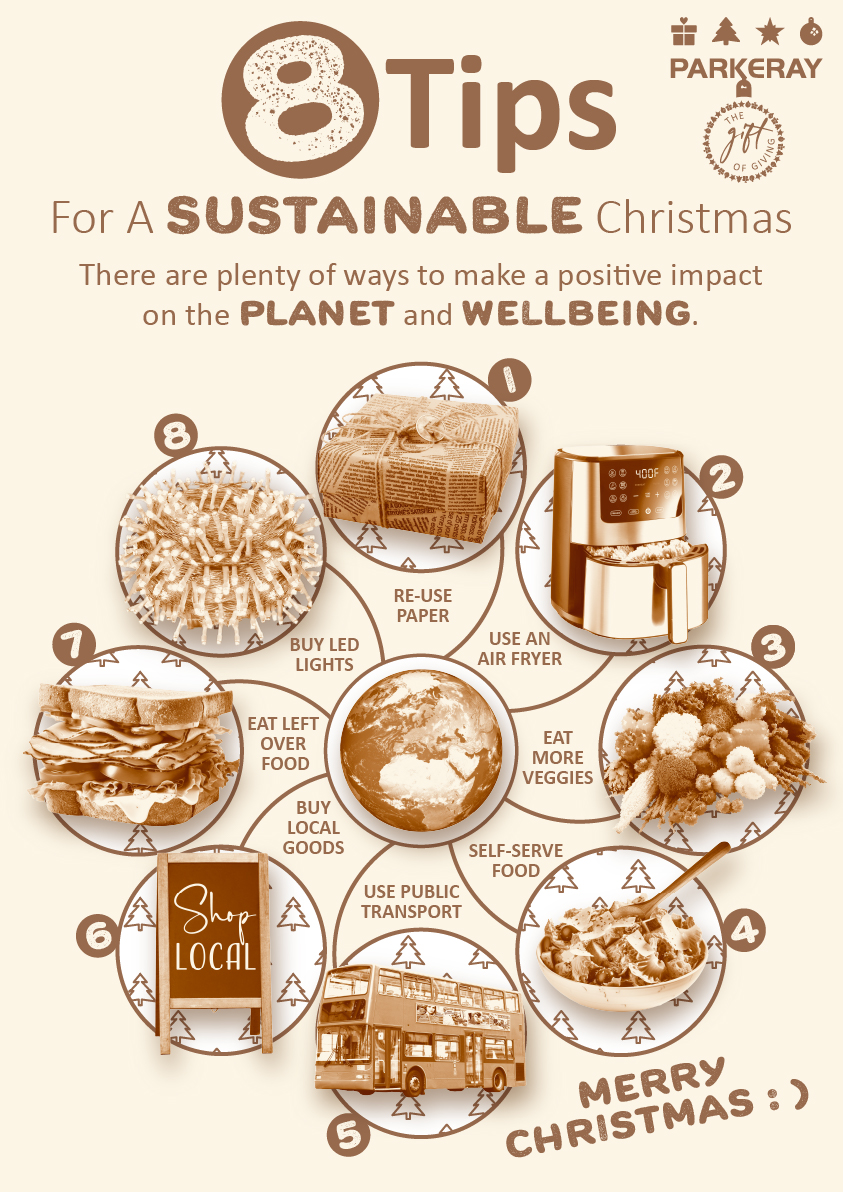Being sustainable at Christmas doesn’t have to be bah humbug! There are plenty of ways to make a positive impact on the planet and wellbeing.
Did you know every Christmas in the UK, the average person spends £41 on unwanted presents, 114,000 tonnes of plastic packaging go to landfill, and we throw away nearly 2 million turkeys? So, how can we make Christmas a more sustainable occasion? Our Sustainability Manager, Luke Barrett, shares his top tips below:

- Re-use paper: Newspapers and magazines are a great alternative to traditional wrapping paper as well as fabrics such as curtains or bedding.
- Use an air fryer: Cook some of your Christmas roasts using an air fryer or slow cooker (if possible), as they are more energy-efficient than ovens.
- Eat more veggies: Vegan options have lower carbon footprints compared to meat and dairy options. For some tasty recipes including Christmas pudding click here
- Self-serve: Self-serving enables people to take the amount of food they want and reduces food waste.
- Use leftovers: Try and use all your leftovers in the period after Christmas day.
- Take public transport: Using public transport as a means of travelling instead of driving is far more environmentally friendly. If you’re flying somewhere and it’s financially feasible, you could try and reduce your carbon emissions by buying carbon offsets.
- Buy local: Try and buy locally produced presents and if possible, gifts of higher quality to ensure they last longer. Buying Christmas presents that do not require electricity, such as books or board games, will also reduce carbon emissions.
- Buy LED lights: When splashing out on new Christmas lights, buy LEDs as they are more energy efficient.
While these actions will make your Christmas more sustainable, the simplest way to achieve a more environmentally friendly yet enjoyable Christmas is to consume less stuff, preferably the things that do not contribute to your enjoyment.